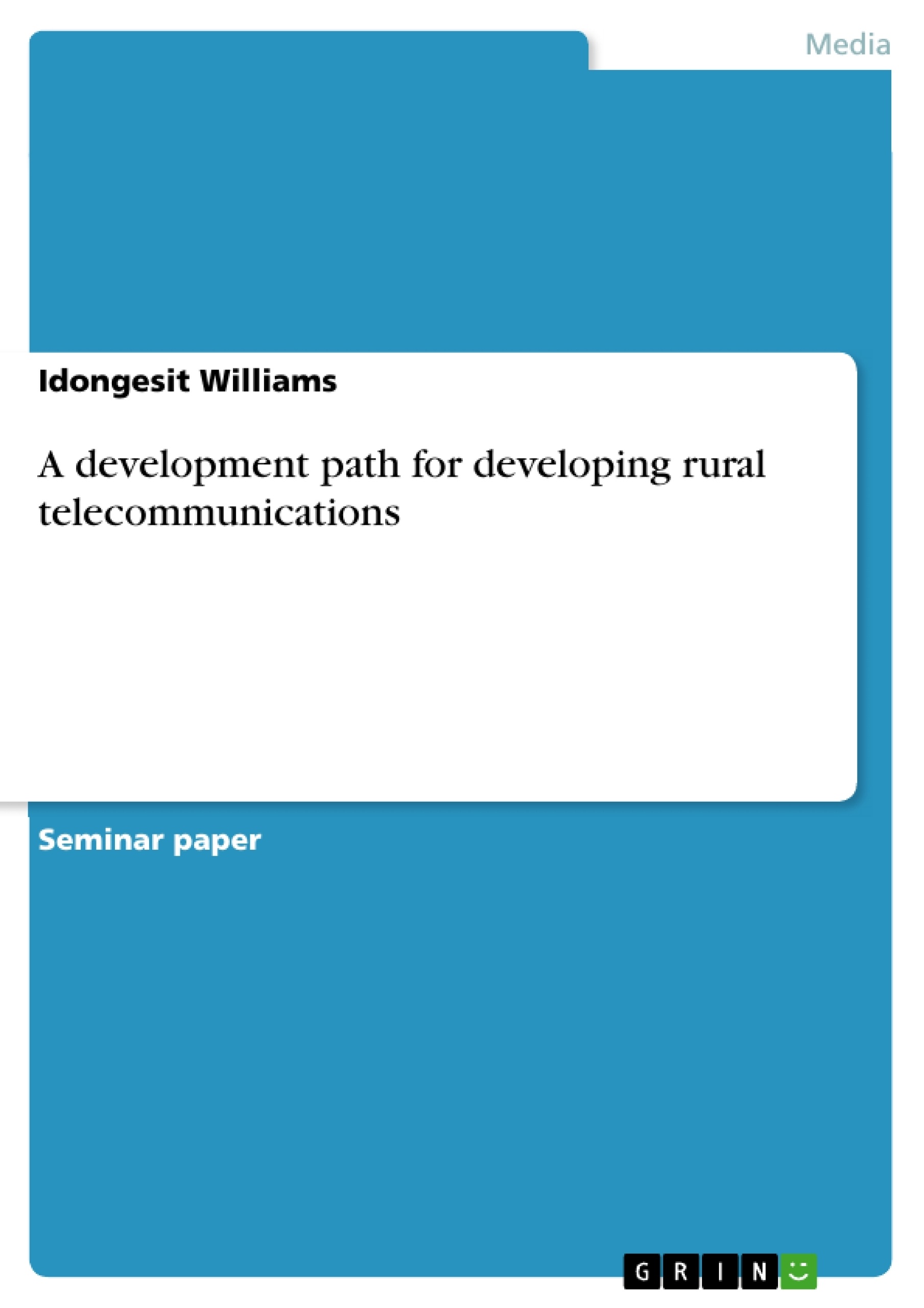Attaining universal access and service of ICT and telecommunication services is the target of many countries. Unfortunately in sub-Saharan Africa, telecommunication services are either scarce or non-existent in rural areas. Open access and competition policies has not had an impact to rural areas as they are not commercially viable to telecom and ICT service providers. What type of intervention is needed to enable the diffusion of ICT and telecommunication services in rural areas, especially in third world countries? This conceptual paper discusses the potential of a development framework that can make the adoption and diffusion of ICT possible in rural areas. It is a conceptual paper which is part of an ongoing research.
Inhaltsverzeichnis (Table of Contents)
- Introduction
- Rationale for the development framework
- Development Framework
- Policy framework
- Economic Framework
Zielsetzung und Themenschwerpunkte (Objectives and Key Themes)
This report aims to develop a framework for enhancing telecommunications access in rural areas of developing countries. The report focuses on the role of policy, technology, and economics in driving ICT adoption and diffusion in these areas.- The need for a tailored policy framework to encourage rural telecommunication development.
- The importance of cost-effective technologies for deployment in rural areas.
- The role of an economic framework in ensuring the sustainability of rural telecommunication services.
- The significance of public-private partnerships in funding and managing infrastructure development.
- The benefits of encouraging entrepreneurship and competition in rural telecommunications markets.
Zusammenfassung der Kapitel (Chapter Summaries)
Introduction
This chapter provides a general overview of the challenges faced in expanding telecommunications services to rural areas in developing countries. It highlights the economic and social benefits of ICT development and the need for a comprehensive framework to address the unique needs of these areas.Rationale for the development framework
This chapter emphasizes the importance of considering policy, technology, and economic factors in developing a successful framework for rural telecommunications. It discusses the evolving landscape of the telecommunications industry, driven by technological advancements and liberalization policies.Development Framework
Policy framework
This section outlines a proposed regulatory framework for promoting rural telecommunications, with a focus on the roles and responsibilities of key stakeholders, including the government, parliament, regulator, and Universal Access and Service Funds. It further proposes specific policy initiatives to reduce the cost of deployment and access to services, such as tax incentives for entrepreneurs and reduced spectrum allocation costs.Economic Framework
This section focuses on the economic aspects of rural telecommunications development, identifying the market players, outlining the infrastructure deployment plan, and detailing the funding strategy. It highlights the importance of public-private partnerships, government subsidies, and user adoption strategies in ensuring the long-term sustainability of the program.Schlüsselwörter (Keywords)
This report focuses on the development of rural telecommunications in developing countries. It explores the interplay between policy, technology, and economics in driving the adoption and diffusion of ICTs in these areas. Key themes include public-private partnerships, regulatory frameworks, universal access, cost-effective technologies, and sustainable business models. The report emphasizes the need for tailored solutions that address the unique challenges faced by rural communities in developing countries.- Quote paper
- Idongesit Williams (Author), 2011, A development path for developing rural telecommunications, Munich, GRIN Verlag, https://www.hausarbeiten.de/document/187720


